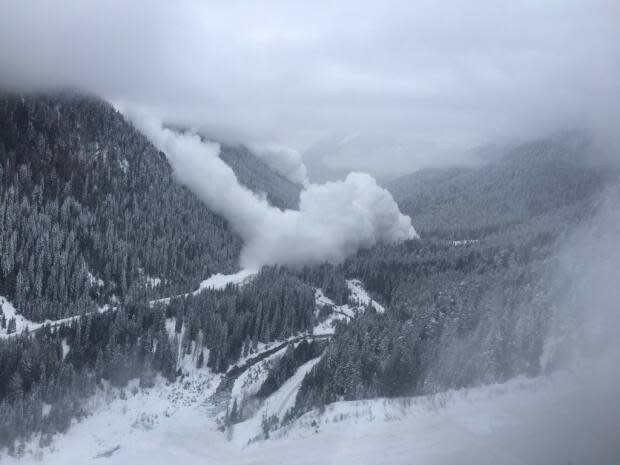B.C. winter weather bringing snow, rain and avalanche risk

Environment Canada has issued snowfall warnings for parts of southeastern B.C., and a rainfall warning for eastern Vancouver Island where thousands of residents were without power Friday night.
In southeast B.C., snowfall warnings are issued for the Boundary, West Kootenay, and Kootenay Lake regions, including for Highway 3 from Paulson Summit to Kootenay Pass.
"A frontal system will bring snow at times heavy over parts of the B.C. Interior," the warning reads.
"Snowfall has already begun and will continue throughout the day before tapering off to a few flurries this evening."
On Friday there were warnings over freezing rain affecting the Fraser Valley as well as the Sea-to-Sky highway, where up to 25 centimetres of snow was forecast.
The Ministry of Transportation said provincial road crews are out preparing "in full force" but drivers are asked to be prepared and adjust to weather conditions, as rapidly accumulating snow could reduce visibility.
As of 10 a.m. PT on Saturday, about 3,500 people on Vancouver Island are still without power, according to B.C. Hydro. By the end of Saturday most power had been restored.
Close to 1,200 hydro customers in the Lower Mainland and Sunshine Coast were without power at 5 p.m. on Saturday.

Avalanche risk
As of Saturday morning, Highway 1 was closed through the Fraser Canyon near Jackass Mountain due to a high avalanche risk but was re-opened late Saturday afternoon.
Avalanche Canada is reporting dangerous conditions across a third of the province.
"Anyone that's looking at heading out into the backcountry in the winter, particularly in western Canada, should be considering avalanche hazards," said Tyson Rettie, a forecaster with Avalanche Canada.
Meanwhile, the B.C. Search and Rescue Association is also asking people going into backcountry areas to check conditions, make plans, and take appropriate equipment.
"We're finding that the decisions you made before you left your house will determine how enjoyable your trip is going to be, and if you run into a problem, that will determine how successful you are in allowing us to rescue you," said Dwight Yochim, a senior manager with the association.

 Yahoo Movies
Yahoo Movies 
